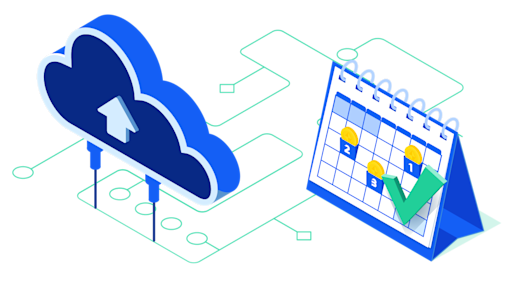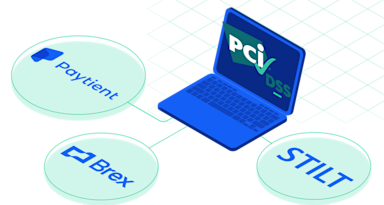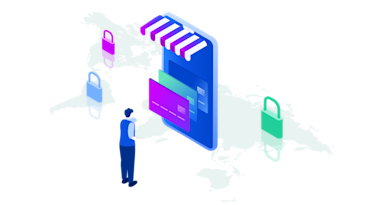Last year was volatile. Many industries struggled, while some found their legs. One space, in particular, found the spark to propel their own business and serve as a support system to the global economy. Meet Buy Now, Pay Later, known as BNPL in the payments industry – an afterpay financing option empowering consumers and merchants alike.
What is Buy Now, Pay Later?
Buy Now, Pay Later gives consumers an alternative to credit cards. With BNPL, consumers get an instant, often interest-free loan at the point of sale when shopping online or in-store. This allows consumers to buy bigger purchases than they would otherwise be able to – or at least buy them more comfortably. It also enables them to put nothing or a small percentage down at the time of purchase, then pay off the loan over a predetermined time span in installment payments.
For example, say you need (or want) to buy something that costs $400. With BNPL, you pay in 4 payments of $100 over four months. Each BNPL company offers its own payback plans and card options, often both virtual and physical.
A Classic Concept
To fully understand the BNPL, we can look back to the Great Depression, a time when most everyone was struggling. Merchants and retailers were having trouble making ends meet as the vast majority of consumers lost their discretionary income. Yet, goods still needed to be purchased. But retailers, desperate to keep the lights on, needed consumers to spend money on wants as well as needs.
The challenge was, consumers couldn't afford non-essential items at the time of sale. This was when layaway started - the original Buy Now, Pay Later option before credit cards, and debit cards existed. Consumers could now acquire items today and pay little amounts back over time until it was fully paid off - a win/win for both buyers and sellers.
Modernized for Today
The coronavirus pandemic imposed similar financial burdens to that of previous recessions. With these challenges came the need for something similar to layaway...this time leveraging the advances made in fintech and applied at the point-of-sale in an e-commerce environment.
While BNPL was already beginning to be common in countries like Australia, now the U.S. market started to see it pop up all over the place. This allowed Americans, shopping online in droves and hurting financially from the pandemic, to purchase higher-priced items without the total amount of cash on hand, while avoiding negatives like credit card debt, late fees, and high interest rates.
Millennials and GenZ show a keen interest in the BNPL phenomenon. PYMNTS.com's report on the BNPL industry indicates that a staggering 87% of consumers between the ages of 22 and 44 have expressed interest in BNPL payment.
Good for Merchants
And it's not only consumers that benefit. Empowering the consumer empowers the e-commerce retailer, increasing cash flow due to higher conversion and larger orders. Affirm, for example, touts an increase of 85% average order value, and Klarna advertises a 41% increase in AVO and a 30% increase in conversion.
Definitely Good for BNPL Providers
We’ve seen BNPL services trend globally, flag shipped by BNPL players like PayPal, Affirm, Klarna, VGS customer Zip, AfterPay, and others, including...
Very Good News for Zilch!
Very Good Security customer Zilch announced this week that they've raised $80M in financing, led by Gauss Ventures and M&F Fund, at a $500M valuation. This UK-based startup announced in advance of launching to U.S. consumers.
Zilch is a direct-to-consumer BNPL option with more than 500,000 users, with sign-ups of around 4,000 a day on its app. Since consumers use Zilch directly, there's no need for merchants to integrate it into their e-commerce checkout. Zilch offers shoppers an option to pay over time with no interest, late fees, early payment fees, or annual fees.
They've also partnered with Mastercard. Zilch offers customers a payment card that allows them to use a Mastercard number at checkout, with the option to pay in installments or pay the same way they would with a traditional credit card.
Where Very Good Security (VGS) Fits In
VGS has seen an influx of BNPL customers as well, powering card issuers globally by offering a few key things:
- Data Ownership: With VGS, BNPL companies own the card data and all the utility of owning that card data without the overhead and liability of actually storing the raw, sensitive card information. This also expands into personal information collected and securely routed for loan origination.
- Vendor Optionality: Now BNPL card issuers can remain agnostic and distant from vendor lock-in by having the ability to work with any issuer network/platform and route card details to any payment processor at the time of repayment.
- Support for both physical and virtual credit cards.
- PCI Compliance: VGS also certifies various card issuers as a PCI compliant company, enabling BNPL companies to fulfill requirements and demonstrate compliance and security for their users.




